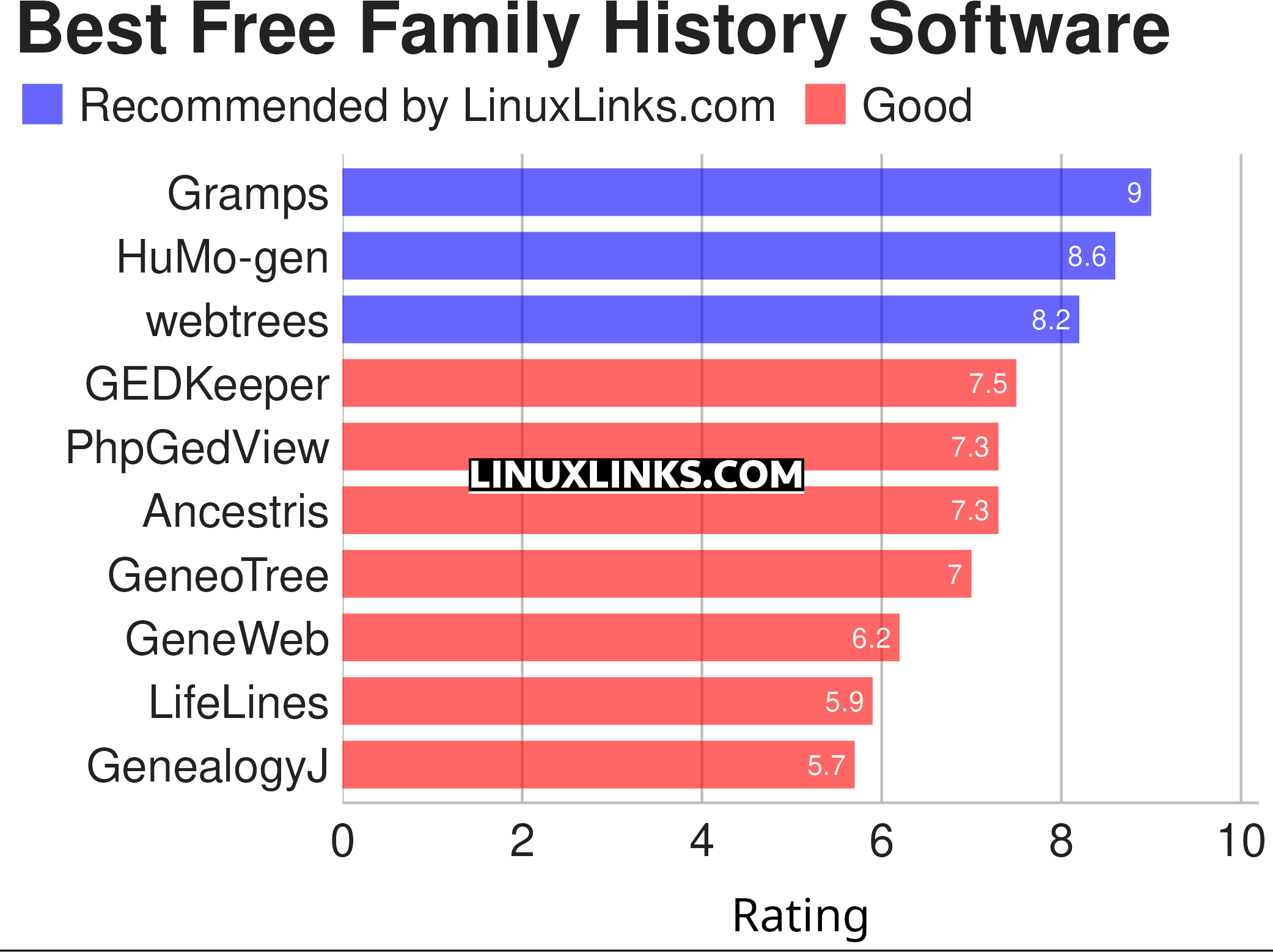Family history (or genealogy) software is computer software used to record, organise and publish genealogical data. With this software, you can help unlock the past, discover secrets and surprises from your past. Genealogy, the study of one’s ancestry, allows people to personalise the past.
There are useful websites devoted to helping would-be genealogists. Further, radio and TV programmes such as the immortal Who Do You Think You Are?, and other shows such as Secrets of the Clink have encouraged a growing band people to trace their roots, sparking new interest. It’s not just celebrities when tracing their ancestry who come up with secrets and surprises from their past.
There are a huge raft of sources to trace ancestors including the General Register of Births, Marriages and Deaths, Census Returns, International Genealogical Index, National Burial Index, Parish Registers, Wills and Other Probate documents. These traditional sources are often available to review over the net, although it’s often not free access. Not all records are online (particularly those before 1837) so visiting local records offices, churches, graveyards or libraries can help in the quest. Huge online genealogical databases also help people discover their history.
Tracing your ancestry is painstaking work, it can be very addictive and creates large amounts of data. Storing that information suggests using some form of database. However, standard relational databases lack the functionality that hobbyist genealogists typically need. This has led to the development of software which offers tailored functionality, to store data and relationships between parents, spouses and children, as well as handling additional events in an individual’s life, photographs, free-form notes, and other multimedia, and source citations. Moreover genealogy software can produce a variety of graphical charts and text reports, such as ahnentafel reports, pedigree charts, and Register reports.
Most genealogy programs can import and export using the GEDCOM standard. GEDCOM is an acronym for GEnealogical Data COMmunication. It is a specially organized text file for organizing genealogy data.
This article is a brief roundup of GEDCOM compatible software for tracing your ancestry. Dig up a few skeletons or surprises. Here’s our verdict captured in a legendary LinuxLinks-style ratings chart.

Click the links in the table below to learn about each program.
| Family History Software | |
|---|---|
| Gramps | Genealogical Research and Analysis Management Program |
| HuMo-gen | Mature, feature-laden, web-based genealogy program |
| webtrees | Web-based genealogy application intended for collaborative use |
| GEDKeeper | Personal genealogical database |
| PhpGedView | Web-based genealogy viewer and editor |
| Ancestris | Generalogy software that keeps your research under control |
| GeneoTree | Genealogy software in PHP / MySQL |
| GeneWeb | Genealogy software with a Web interface |
| LifeLines | Console based genealogy software for family history research |
| GenealogyJ | Full-featured viewer and editor for genealogic data |
This article has been revamped in line with our recent announcement.
 Read our complete collection of recommended free and open source software. Our curated compilation covers all categories of software. Read our complete collection of recommended free and open source software. Our curated compilation covers all categories of software. Spotted a useful open source Linux program not covered on our site? Please let us know by completing this form. The software collection forms part of our series of informative articles for Linux enthusiasts. There are hundreds of in-depth reviews, open source alternatives to proprietary software from large corporations like Google, Microsoft, Apple, Adobe, IBM, Cisco, Oracle, and Autodesk. There are also fun things to try, hardware, free programming books and tutorials, and much more. |

Which ones are likely to break due to system updates? Which ones will allow the making of a book for the family to view without a computer? Where can I get software that will create a database for sorting DNA data so father side vs mother side data can be determined and used?
In my research of all 6 genealogy applications missing info for 1. Reports, 2. Location Maps, 3. Duplicate Clean up, 4. Sorting 5. Book Making, 6. Notes for resources, 7. Email, 8.spell check.
Most of which are necessary to keeping accurate files, sharing files, generating substantial reports. We users in Linux need something more powerful than just the basic always crashing software when there are updates.
I am new to Linux and loving it!
I have used Linux since ~1995 but not genealogy software which is new to me. I wouldn’t know what is missing from the software to make it useful. There are on-line sites with excellent features but what do I need to make a go of it? Gramps, I recently installed and loaded a gedcom file into it but what is next? The book approach would be good but what size is the best?
PC
I have been using Gramps for years and never once had it crash.
1) It has a wide range of reports, from graphical to text.
2) I don’t know about location maps but you can enter longitude and latitude.
3) Duplicate clean up. It has that.
4) Sorting. I don’t really understand what you want there but if you mean rearranging the order of children. Once again Gramps does it.
5) Book making. Gramps does it.
6) Notes for resources. Gramps does it.
7) Email. Definitely something I wouldn’t want as it is not a contact program, So I haven’t even looked and can’t be bothered.
8) Spell check once again is something I couldn’t be bothered within a genealogy program. It would be interfering too often and there are too many other things apart from spelling that are CRITICAL, so could lead to sloppy input.
Funnily enough years ago I made this program and the main user was Maureen who wasn’t a good speller so every time she made a mistake (or new word) the program said “Get it right Maureen”. She was on the phone one day and the person on the other end wonder who was talking to her like that and she said “It’s all right it just my computer”. :))
I don’t know about the other programs because I settled on Gramps but they could be equally good. Once you learn the ins and outs of one it pays to stick with it. Fewer errors.
Sometimes I have wanted a different style of report and not know the programming language I have thought about using a text report and then Latex.
Have fun.
lucky you – my version crashes regularly and complains about closing and saving and starting again
Your data is probably corrupted. Lots of possible reasons, and likely nothing to do with the software itself. I had an issue like this for different software that was caused by bit rot.
If a Linux developer could create something like GenoPro (Windows platform), I’d use it. I don’t like all the faffy placeholders in some software for photos, coloured graphs and fancy scroll work…there weren’t any photos in the 1700’s so a waste of space as far as I’m concerned. I retain an old WinXP machine for running GenoPro, the skeletal structure using simple circles and squares for husband/wife, son/daughter etc is excellent. I have over 8,000 individuals….not as many as some people, but quite enough to keep busy with.
It is supposed to run under WINE but configuring these things is a bit beyond me. I have also used a web-based program (NextGen) but this means forking out for web-hosting/database costs. Much easier to have it all offline.
The HTML based programs can be run on your local computer in Linux. Total privacy and feature rich.
Ancestris is also a good option for Linux
Gramps (Genealogical Research and Analysis Programme) is great. I use it for my Gedcom files (file extension .ged) is the lingua franca family tree file format that all Genealogy programmes uses to exchange trees). Highly recommended.
To take one of them, popular/free ‘Gramps’: too overdone, too unintuitive. If you find out where to start and how to join data, you’ll get lost in the Family Bush in the end. Much other genealogy software is sick in the same bed.
Have you used Gramps for more than 5 minutes before coming to that conclusion. Gramps is really easy to use.
Gramps is the best open source solution.
Yes, we agree with your opinion.
Now if there was a Linux version of Legacy Family Tree I sure would use it.
Have tried using Legacy Family Tree via Crossover, snag is it still crashes and freezes up which is annoying.
Reason I use it is due to the layout and being able to search for a person and seeing whom is related or any other notes I have made concerning the individual.
This feature is real handy when doing a One Name Study.
If ifs and ands were pots and pans, there’d be no work for tinkers’ hands.
I’ve been with Linux and Gramps for many years. Won’t ever go back to the others (both OS and software) that used to drain my emotional and financial resources.
gramps is not intuitive at all as to what goes in where – dreadfully slow adding pieces at a time